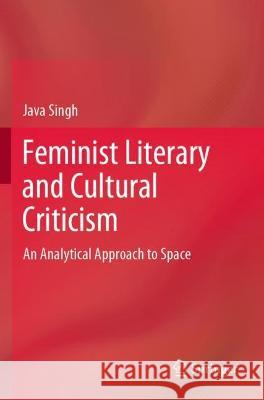Feminist Literary and Cultural Criticism » książka
topmenu
Feminist Literary and Cultural Criticism
ISBN-13: 9789811914287 / Angielski / Miękka / 2023
Feminist Literary and Cultural Criticism
ISBN-13: 9789811914287 / Angielski / Miękka / 2023
cena 442,79
(netto: 421,70 VAT: 5%)
Najniższa cena z 30 dni: 424,07
(netto: 421,70 VAT: 5%)
Najniższa cena z 30 dni: 424,07
Termin realizacji zamówienia:
ok. 22 dni roboczych.
ok. 22 dni roboczych.
Darmowa dostawa!
Feminist Literary and Cultural Criticism explores inter-disciplinary connections across Cultural Anthropology, Geography, Psychology, and feminist literary criticism to develop a theoretical framework for spatial criticism. Using the spatial gynocritics framework developed in the book, it analyzes selected texts from five different genres–short-story, novel, film, cartoons, and OTT series, created by women. The creators discussed in the book constitute a transnational collectivity of women that shares common concerns about gender, environment, technology, and social hierarchies. They comprise a geographically and linguistically diverse group from India, Uruguay, Spain, Argentina, and the USA. The book offers immense potential for a comparative study on numerous aspects, among which the present work concentrates on the treatment of Space, demonstrating that spatial logic and grammar are essential elements of the feminist praxis. The book reveals the unexamined potential in the women creators’ praxis of destabilizing, decentring, and destroying the ascribed centres around which social arrangements are structured. Moreover, the book offers valuable analytic tools that add to scholarship in literary theory, comparative cultural studies, comparative literature, gender studies, feminist criticism, and interdisciplinary humanities. It is an indispensable aid to students and faculty in these areas of study, enabling them to critique texts from a fresh perspective.











